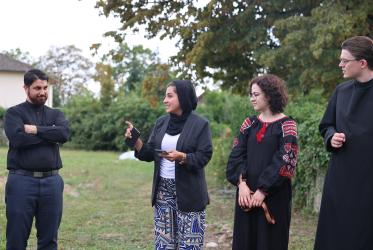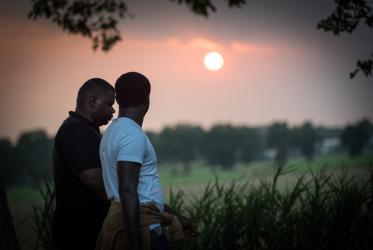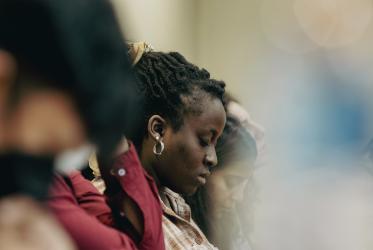From warm greetings, to music and dancing, to practical tips, a World Council of Churches (WCC) Ecumenical International Youth Day on 12 August drew young people from across the world for a virtual gathering that explored the theme of mental health, and how churches can support young people in this area of their lives.
Rhee Hanbeet, a member of the Ecumenical Youth Council in Korea and a member of the World Council of Churches ECHOS Commission on Youth, moderated the dialogue. “Our goal is to highlight the active contributions and participation of young people in the ecumenical movement,” she said.
In a video greeting, WCC interim general secretary Rev. Prof. Dr Ioan Sauca expressed appreciation for the hope that the young people bring to the ecumenical movement. “We continue to see and experience God’s spirit moving in different areas and spaces of the fellowship,” he said. “Despite these challenging times, there are still signs of hope that come by God’s grace and our faith in Christ Jesus. One of these signs of hope is today’s celebration.”
Featured expert speakers talked about the relationship between spiritual life and mental health. Dr Chiwoza Bandawe, associate professor in the Department of Mental Health in the College of Medicine at the University of Malawi, discussed the need for developing mental health literacy among youth ministries. “When we talk about mental health, we are really talking about our ability to think, feel and behave in such a way that realizes our full potential to cope with the challenges of life, and to be able to study and work in a proactive and meaningful way, and to contribute to our community,” he said.
Lita Vatuvei, from Tonga, shared a perspective on mental health from her context, and urged young people to ask themselves some key questions: “Who am I? What do I value? What are my core beliefs?”
For Jeremiah Edward Bohol, a clinical psychologist from the United Methodist Youth Fellowship in the Philippines, young people should be in community to strengthen each other’s mental health. “I believe that mental health is or should be a collective effort rather than perceiving it as a personal or an individual problem,” he said. “We become disconnected with each other because of other priorities like work, career, schooling, and so on.”
The International Youth Day, first declared by the United Nations in the year 2000, is celebrated each year under a different theme.
Links:
Learn more about the WCC work on youth in the ecumenical movement






